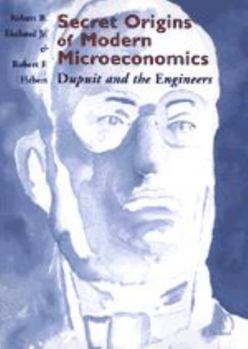Secret Origins of Modern Microeconomics: Dupuit and the Engineers
How did contemporary microeconomic theory emerge? Who were its chief architects? Conventional wisdom points largely to the work of Alfred Marshall (1842-1924) and his colleagues in England in the late nineteenth century. In this highly original and important contribution to the history of economic thought, Robert Ekelund and Robert H bert convincingly argue that the intellectual tradition of microeconomic inquiry was initiated by members of the Corps des Ing nieurs des Ponts et Chauss es (French corps of state civil engineers), most notably Jules Dupuit (1804-66). Using documents previously unavailable in English, the authors present a cohesive and original picture of French economic thought that solidly documents the contributions of Dupuit and his colleagues. This is a seminal work about the foundations of modern microeconomics. "A very fine piece of work that provides material I have never seen before, is well written, and has undoubtable merits."--William Baumol, C.V. Starr Center for Applied Economics, New York University "By bringing to the forefront the achievements of French engineer Jules Dupuit, this work changes our view of the history of microeconomics. Secret Origin of Modern Microeconomics is a commentary on our discipline's mythology of origins: it reminds us that, in the construction and maintenance of canonical authority, the recoginition of founding fathers requires simultaneous, often subtle, gestures of exclusion."--Philippe Fontaine, cole Normale Sup rieure de Cachan
Format:Hardcover
Language:English
ISBN:0226199991
ISBN13:9780226199993
Release Date:March 1999
Publisher:University of Chicago Press
Length:484 Pages
Weight:1.80 lbs.
Dimensions:1.2" x 6.0" x 9.0"
Customer Reviews
0 rating





